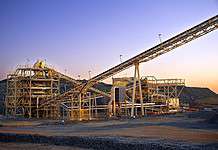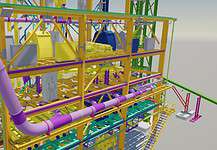![BHP Billiton coal president Mike Henry said the coal industry needed a stronger, unified message. [Image: BHP Billiton]](https://australianminingreview.com.au/wp-content/uploads/2015/10/EnergyCoal_MtArthurCoal_Australia_2005_12_hires.jpg)
October 7, 2015
THE coal industry is losing in the public perception stakes because it lacks a unified message, according to BHP Billiton coal president Mike Henry.
“It would be fair to say that as we stand here today, in the court of public opinion, the ‘no coal’ camp has been more effective,” Mr Henry told the American Chamber of Commerce. “Anti-coal activism has been building momentum over many years.”
Groups determined to shut down coal completely were influencing public perception, he said.
Greenpeace report The Energy [R]evolution claimed that fossil fuels could be phased out by 2050, and according to Mr Henry recent research conducted for the industry indicated there was a widespread public view that coal use would be phased out during the next 10 to 20 years and replaced by renewable energy sources.
“We should be working to address the claims made by those who seek to end fossil fuels and the coal industry – by getting the facts on the table in a respectful, balanced and easy-to-understand way,” Mr Henry said.
“We in the resources industry need to be even more unified in recognising the change that must occur and be an even more active part of the climate change solution.
“We must come together in a way that sees us adopt a more unified, balanced and credible view in respect of climate change.”
BHP Billiton’s recent Climate change: Portfolio analysis found that climate change policy and the push for lower emissions would bring uncertainty to its energy coal assets through switches from coal gas in power generation and renewable energy capacity additions for power generation.
Meanwhile, metallurgical coal could be affected through an increased rate of steel scrap collection and materials substitution.
Coal contributes $40 billion per year to the Australian economy and has been part of the national economy for more than 170 years.
More than 152,000 people work in the Australian coal industry through direct or related jobs.






















